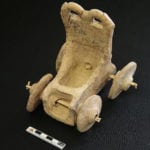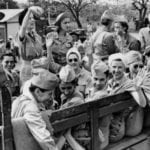 History
History  History
History  Health
Health 10 Everyday Activities That Secretly Alter Consciousness
 History
History Top 10 Historical Disasters Caused by Someone Calling in Sick
 Animals
Animals 10 New Shark Secrets That Recently Dropped
 Movies and TV
Movies and TV 10 Forgotten Realities of Early Live Television Broadcasts
 Technology
Technology 10 Stopgap Technologies That Became Industry Standards
 Weird Stuff
Weird Stuff 10 Wild Facts About Taxidermy That You Probably Didn’t Know
 Travel
Travel 10 Beautiful Travel Destinations (That Will Kill You)
 Miscellaneous
Miscellaneous 10 Modern Marriage Rituals Born from Corporate Branding
 Weird Stuff
Weird Stuff Ten Bizarre Visions of 2026 from Fiction
 History
History 10 “Modern” Problems with Surprising Historical Analogs
 Health
Health 10 Everyday Activities That Secretly Alter Consciousness
 History
History Top 10 Historical Disasters Caused by Someone Calling in Sick
Who's Behind Listverse?

Jamie Frater
Head Editor
Jamie founded Listverse due to an insatiable desire to share fascinating, obscure, and bizarre facts. He has been a guest speaker on numerous national radio and television stations and is a five time published author.
More About Us Animals
Animals 10 New Shark Secrets That Recently Dropped
 Movies and TV
Movies and TV 10 Forgotten Realities of Early Live Television Broadcasts
 Technology
Technology 10 Stopgap Technologies That Became Industry Standards
 Weird Stuff
Weird Stuff 10 Wild Facts About Taxidermy That You Probably Didn’t Know
 Travel
Travel 10 Beautiful Travel Destinations (That Will Kill You)
 Miscellaneous
Miscellaneous 10 Modern Marriage Rituals Born from Corporate Branding
 Weird Stuff
Weird Stuff Ten Bizarre Visions of 2026 from Fiction
9 Amazing Clairvoyant Dreams that Defy Explanation
We’re told that dreams are a way for our subconscious minds to communicate with us, sending symbolic messages that often require interpretation. But what about dreams that seem to give us premonitions of future events? Here are 10 cases of people whose dreams astonishingly came true.
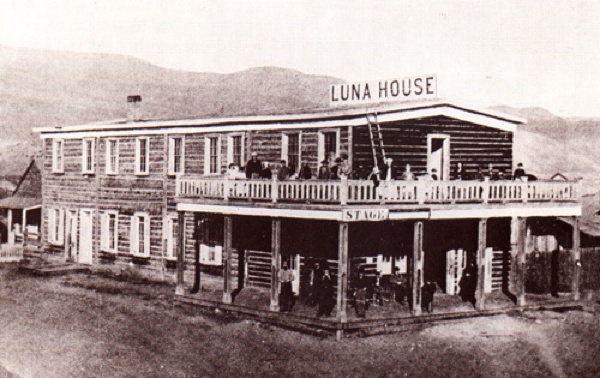
In Lewiston, Idaho, Luna House—a hotel and stage office owned by Hill Beachy and his wife—became more popular due to the proprietor’s notoriety when his dream about a dead friend brought several killers to justice who would otherwise have gotten away with murder.
His close friend, merchant Lloyd Magruder, planned to travel from Lewiston to Alder Gulch, Montana, carrying $10-$15,000 in goods to sell to the gold miners. He anticipated an excellent profit for his effort. Beachy expected Magruder to return in October.
Unknown to Beachy, on his way home, Magruder and his escorts were ambushed by a four man gang near the Bitter Root Mountains. One of the men—Chris Lowry—struck Magruder with an axe, killing him. The escorts were also killed, as well as a herd of sheep. Lowry and his accomplices dumped the bodies over a cliff where they wouldn’t be found, and took off with the stolen gold and several horses.
Back in Lewiston, on the same night as the murder occurred, Beachy dreamed he saw his friend murdered with an axe. More importantly, he saw the killer’s face. When he awoke, he feared for his friend’s safety.
Sometime later, four men entered Luna House, asking about tickets for the Walla Walla stage. Beachy instantly recognized the killer from his dream and knew Magruder had been murdered. He checked the gang’s horses and found his friend’s saddle. Lacking enough evidence to have the men arrested, he told his story to the whole town, eventually procured an arrest warrant, and followed Lowry and the others to San Francisco, where they were finally apprehended, returned to Lewiston, tried, and three were sentenced to hang.

From the reminiscences of Lt. Colonel Charles Caddell comes a tale of a soldier’s terrible premonition of death he received in a dream about his late father. The soldier was Corporal William M’Kinlay, a Grenadier fighting in the Peninsular War.
Just before the Battle of St. Pierre, M’Kinlay was asleep among his fellow officers. He seemed to wake and surprised the sentries by walking to a place a little distance from the bivouac, where he appeared to speak to someone—but no one else was there. It became clear to the eyewitnesses that M’Kinlay was sleepwalking.
Later, an awake M’Kinlay told his commanding officer he’d dreamed an apparition of his late father appeared to warn him of approaching death. In fact, according to the dream, he would die the next day. He wrote out a will and entrusted it to the commander, who chalked up the episode to pre-battlefield nerves and tried the calm the young man.
During the battle, M’Kinlay fought with bravery. The action was almost over when the commander joked to M’Kinlay that his dream had been mistaken. Shortly afterward, a French sharpshooter shot the grenadier in the neck, killing him. According to the accounts, the enemy had taken aim at the commander, and M’Kinlay lost his life defending the man.
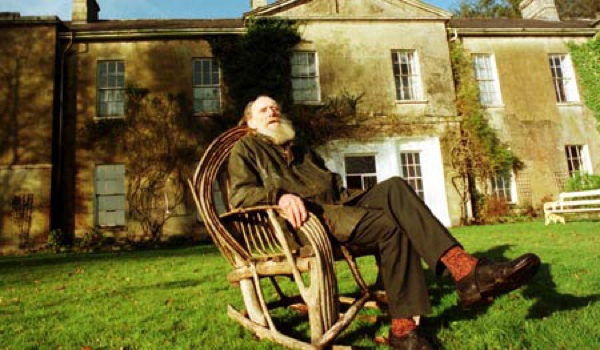
According to his testimony, while continuing his studies at Balliol College, Oxford, John Godley—Later, 3rd Baron Kilbracken, DSC—on March 8, 1946 began to experience an incredible string of luck at the horse races, all because of his dreams.
In a dream, Godley read a newspaper containing the next day’s racing results. When he awoke, he recalled the names of two winners: Juladin and Bindal. Encouraged by a friend, he placed a bet on Bindal, who won. Then he bet his winnings on Juladin, who also won, earning him a nice return at almost 7-1 odds.
Just before the Grand National race in April of the same year, Godley had another dream about reading racing results in the newspaper. This time, the winner’s name was Tubermore. On waking, he checked the paper and found a horse named Tuberose, considered an outsider. He decided the name was close enough, placed a bet, and won.
Between 1946 and 1947, Godley had eight dreams predicting the winners of horse races. His friends and siblings acted as witnesses, he kept written records of the occurrences, and made a report to the Journal of the British Society of Psychical Research. His predictive ability became sporadic after 1947, and finally disappeared for good after 1958.
Godley is in good company, by the way—in 1891, a butler’s recurring dream about the races ended up with a win and a son named after the horse.
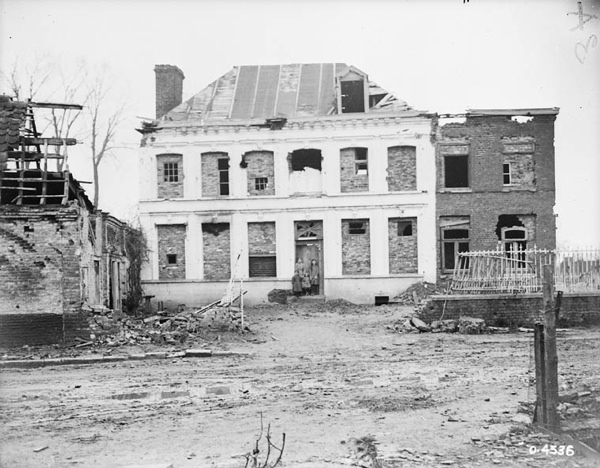
Julia Seper had been feeling nervous about her son, Julius, who’d joined the fighting in France. In a very vivid dream in May 1918, she saw a village utterly ruined by war during a battle. She smelled smoke and heard ear-splitting noise from the guns. Soldiers were out of their trenches, dying or dead, or shouting, cursing, and struggling against German enemies. Worst of all, she saw her son struck by a bullet.
Her struggles to reach Julius woke her up, convinced her son had been hurt in real life. She told her husband, who pooh-poohed the dream. The following day, Julia received a visit from a reporter who told her Julius had been reported as severely wounded on a casualty list.
Questions remained in her mind about her son’s fate until a telegram from Washington finally arrived—because of a clerical error, the notification regarding Julius’ wounding had been sent to the wrong address. The American Society of Psychical Research promised to study the case, but we’ve been unable to find out if they followed up or not.

Less than a week before he was shot and killed in Miami, 54-year old manager Raphael Gonzales had a dream. He saw himself being attacked during a robbery by a former employee, Roberto Alvarez. The next morning, he told his other employees about the dream—a disclosure which would later lead to the arrest of his actual murderer.
Some time before the following Wednesday, Alvarez and his brother entered Gonzales’ market, took money from a cash box, and shot Gonzales in the arm, head, and face. His body was found by a customer, who noticed blood trickling out from the bottom of a locked door. Gonzales had bled to death from his wounds.
An employee told police about Gonzeles’ prophetic dream. Although skeptical, investigators questioned Alvarez, who voluntarily agreed to a search of his house and to be fingerprinted. His fingerprints were found on the cash box, and his palm print on the victim’s car. A witness testified she’d seen Alvarez leave the market around the time of the murder. With the evidence stacked against him, Alvarez was arrested, charged with first degree murder and armed robbery, and confessed to his crime.
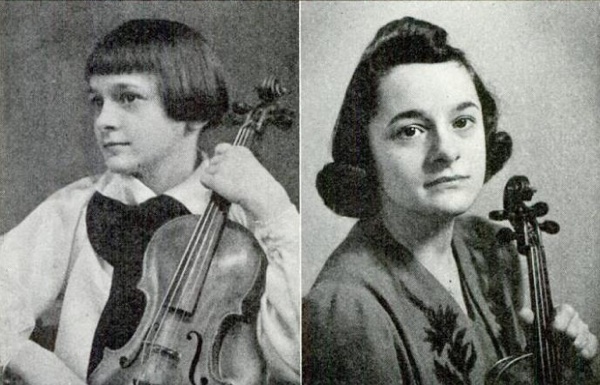
A virtuoso violinist who overcame an incredible disability found some much needed assistance during a concert via a man’s dream.
Born in Ontario, Canada, Betty-Ann Fischer was a musical child prodigy who gave her first violin recital at age six, but that isn’t the most amazing thing about her. She was born with deformed fingers. Told she’d never play the violin with her stumps, she persisted. According to reviews of her concerts, she developed a wonderful technique and could coax breathtaking tones from her violin. In later life, she joined the Toronto Symphony Orchestra.
Before her Toronto Symphony days, at age 21, Betty-Ann was giving a concert in Windsor, Ontario at the Vanity Theater. During the second half of the program, while playing Edouard Lalo’s Symphonie Espagnole, her violin’s fingerboard broke. That might have spelled the end of the concert if not for Mario De Soto, a local violinist.
The night before the concert, De Soto had a dream in which he foresaw the unfortunate incident. After events unfolded for Betty-Ann exactly as in his dream, De Soto volunteered his violin, and she finished her concert thanks to his foresight.

Stephen Stolarski, a Western Union clerk in Philadelphia, Pennsylvania, had the good fortune to be warned of danger twice in dreams—and the second time, he paid attention.
In May 1950, Stolarski fell asleep and dreamed he was the victim of a robbery. When he went to work, he was held up at gunpoint and the Western Union store robbed. So in December 1952, when he had a similar dream, he arrived for his night shift early and immediately deposited $1,000 in receipts from the day shift.
Just as his dream predicted, a couple of hours after returning from the bank, an unidentified man with a pistol entered the store demanding “the big stuff.” The night’s receipts already totaled $800, which Stolarski turned over to the armed robber, but if he hadn’t acted on his dream, the criminal would have gotten away with a lot more cash.
We haven’t been able to determine if the perpetrator was ever apprehended.

In September 1970, Duncan MacRae, owner of a bait shop in Homosassa, Florida, saved a woman’s life when he had a premonition in a dream.
John and Glenda Lennon were out in their boat in the Gulf of Mexico. John enjoyed skin-diving, while Glenda—who didn’t know how to swim—worked on her tan from an inflatable rubber raft secured to the bigger by a rope. At approximately 2 o’clock, she rolled over in the raft, fell out, lost her grip, and was carried away by the strong current.
Her skin-diving husband didn’t notice until a little later, when he returned to the boat and couldn’t find her. Hearing her cries from a few hundred yards away, John swam over to help, buy proved unable to fight the current while towing Glenda. He decided to return to the boat by himself and radio for rescue. Giving her his swim fins, he set out, battling the current to avoid being swept out to sea. On finally reaching the boat after dark, he radioed for help.
John looked for his wife in the dark to no avail. He ended up in Homosassa at MacRae’s bait house, exhausted and unable to communicate.
MacRae joined the search for Glends in the Gulf, but returned to his shop around 3:30 A.M. to get a few hours rest. While he slept, he dreamed about piloting a boat and finding the missing woman. On waking, he and two other men set out to continue the search. MacRae was forced through lack of basic equipment like a compass to navigate by the seat of his pants and by a mysterious guiding force. Despite the difficulties, he spotted something in the water: Glenda Lennon, still alive 20 hours after her ordeal began.
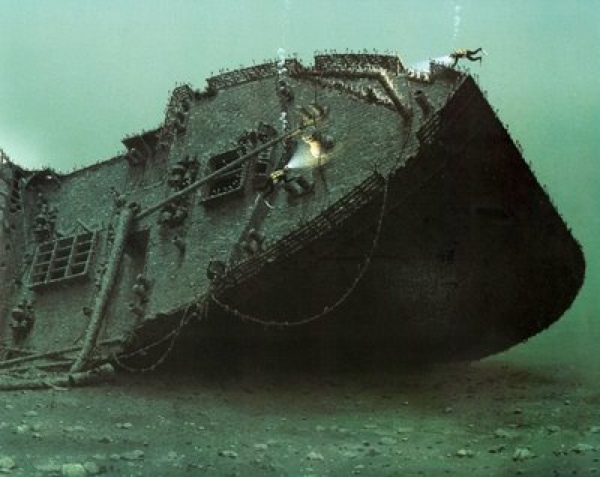
Who hasn’t heard of the sinking of the Titanic? The Empress of Ireland’s fatal collision on the St. Lawrence River on May 29, 1914 has been eclipsed by the more famous luxury ocean liner’s fate, but for one man, the tragedy didn’t come as a complete surprise.
In Sheffield, England, on the same day as the collision with a collier that caused the Empress of Ireland to sink and 1,012 people to lose their lives, A.B. Tapping—a stage manager at a London theater—dreamed he saw Sir Henry Irving (who died in 1905). The famous actor sat in a “handsomely appointed” room with several other people including his son, Laurence Irving. When Henry Irving left the room—a metaphor for dying, or as Tapping put it, “he has left us forever”—Laurence resolutely followed his father.
When he woke, Tapping read about the sinking of the Empress of Ireland. At the time, he didn’t know his friend Laurence Irving and Irving’s wife had been aboard the liner. On seeing a newspaper photograph of the Empress’ saloon, he realized it was the same room he’d seen in his dream. Neither Laurence nor his wife survived the disaster.





